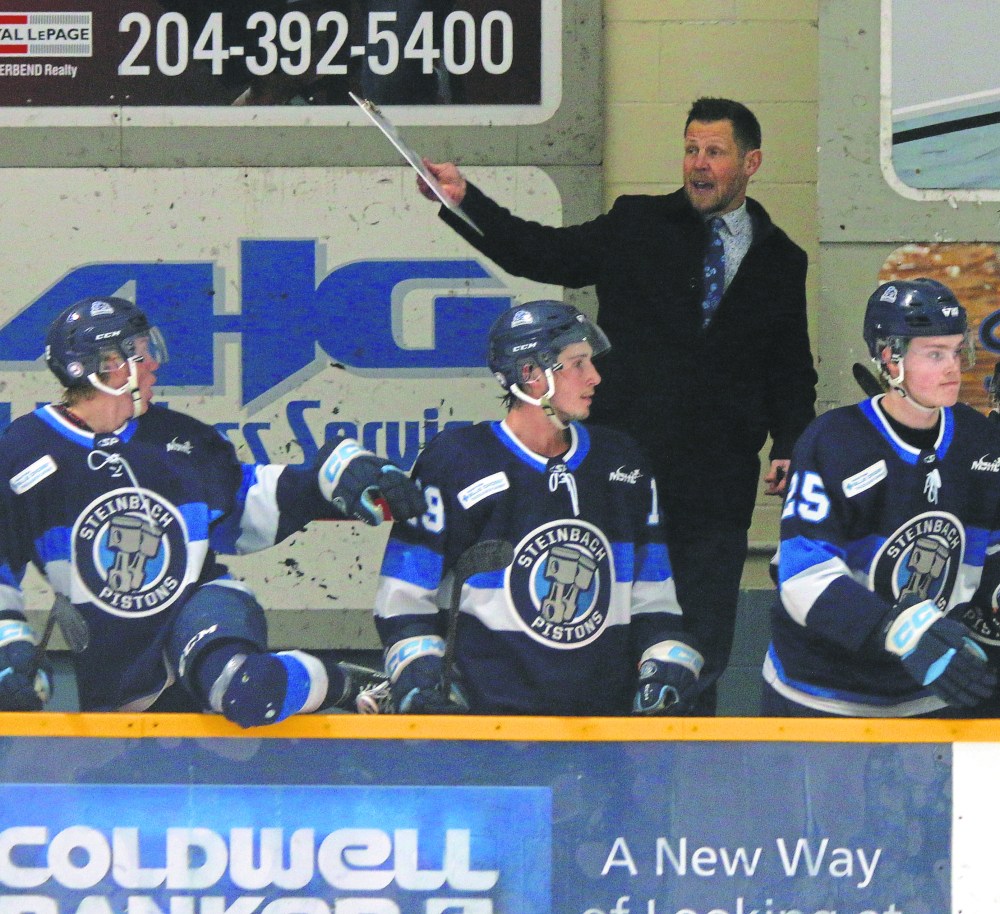AS I SEE IT COLUMN: The legacy of Pistons’ Paul Dyck continues to grow
Advertisement
Hey there, time traveller!
This article was published 15/07/2023 (736 days ago), so information in it may no longer be current.
The selection of Steinbach Pistons defenseman Warren Clark by the NHL’s Tampa Bay Lightning in the sixth round of last month’s entry draft is the latest example of the incredible cascading effects when a team puts Paul Dyck in charge.
As the Steinbach Pistons general manager and head coach, the impact Paul Dyck has on his players is immense.
When the Pistons were two periods away from capturing the franchise’s third MJHL championship (fittingly in the final game ever played in the old barn), Bill Dyck – whose devotion and dedication to minor hockey in the Steinbach area is measured in decades, not years – was kind enough to show me the Pistons wall of fame.

On it are photos of the players who have graduated from playing with the Pistons and gone onto bigger exploits in the game of hockey.
The photos show the Piston alumni who have gone on to play hockey in Canadian college, NCAA, pro hockey in Europe, the AHL and the NHL. The sheer number of players who have used the Pistons as a launching pad for their hockey career is astonishing.
The true impact of Dyck’s influence on the franchise and its players goes well beyond the X’s and O’s strategy and tactics he brings to each game. While those are considerable in and of themselves, it’s Dyck’s connections throughout the hockey world where it can be argued lies his greatest influence.
Paul Dyck played in the MJHL with the Dauphin Kings in 1988-89. The next season he jumped up to the WHL, playing two seasons for the Moose Jaw Warriors. From there Dyck had a long career in professional hockey, playing in the IHL (similar to today’s American Hockey League) for 12 seasons and another five seasons playing pro in Europe.
That kind of lasting power in the pros isn’t just a testament to Dyck’s skills as a hockey player, it planted the seeds that would blossom into one of Canada’s top junior A franchises.
When you play pro hockey for 17 years the number of friends and contacts you make is immeasurable.
It’s safe to assume that many of Paul’s former teammates and friends are now in positions of influence in pro hockey, working as scouts, in player development or some other important position.
So when Dyck calls up a friend, after they reminisce about their own careers he changes the subject and says “I’ve got a big, right-handed shooting defenseman who has a lot of poise with the puck, you should take a look at him”, his friends listen.
To put it another way, as Bill Dyck pointed out to me during my tour of the Pistons wall of fame, a lot of players want to play for the Pistons not just because Paul is a great leader, mentor and developer of socially conscious young men to contribute to world outside of the rink, they want to play with the Pistons because of Paul’s legendary contacts around the hockey world.
He can open doors that few people can open.
So when a player plays for the Pistons and puts in the time and effort to get better and develop as a player, they are often rewarded with a chance to further their hockey careers, specifically and explicitly because of Dyck’s contacts and connections throughout the hockey world.
The combination of Dyck’s knowledge of the game, his own success in the game, the success of the franchise he heads and the hockey people of influence in his phone’s contact list that he personally knows, is essentially priceless for a young man wanting the best path possible to a career in hockey.
Congratulations to Warren Clark and the people in his universe that have helped get to that extremely rare place of an NHL team drafting a player right out of junior hockey.
And congratulations to Paul, on this latest manifestation of the many gifts he brings to the Pistons.
